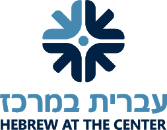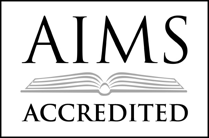Sixth Graders Create Hebrew-Language Documentary Films Exploring Family Immigration Stories
May 19, 2016 by
This spring, Sixth Grade Hebrew students at JPDS-NC began a unit on their family’s history, roots, and journey to America, culminating in each student creating a documentary film in Hebrew about their family’s immigration stories. Throughout this project, the students practiced advanced Hebrew language skills, expressing complex ideas and using rich language in both their writing and speaking. They also honed their language skills by organizing their ideas, constructing a cohesive narrative, and conducting research in both Hebrew and English. Driven by their creativity and personal connection to the subject, the students worked hard to create meaningful documentary films that could be shared with their families and with broader audiences.
We began the research phase of the project by exploring the last names in each student’s family and tracing their origins to learn the meaning of each name. Is it related to the place a family came from? Is it related to past family members’ occupations? Or is it a nickname that stuck with a person? While researching their family names, students collected new and old stories about their families, and learned about their personal history.
The next chapter of the unit integrated the students’ learning from both Hebrew and Judaic Studies. While learning about the Holocaust in Judaic Studies, the Sixth Graders also learned about historical patterns of immigration of Jews around the world. They then examined their own family stories in light of the information they learned. When did their families emigrate? Where did they leave from and where did they go? What propelled them to leave their life on one continent and move to another? The answers to these questions reflect the story of Jewish migration from the beginning of the 19th century through the 20th century and today.
Next each student began the process of creating a documentary film about the immigration stories in his or her family. We enlisted the help of seasoned film directors and producers within the JPDS-NC community. Documentary filmmaker Jonathan Gruber (Follow Me: The Yoni Netanyahu Story, Miriam Beerman: Expressing the Chaos) who is also a parent of Sixth Grader Rebecca Gruber, discussed his experiences as a writer, producer and director. He shared his considerations when selecting subjects for his own films, some of which have common themes with ours. He also guided the technical aspect of our work, sharing tips on how to combine the multiple layers of a movie: visuals, audio, and other tracks. We were also fortunate to learn from JPDS-NC Third Grade Teacher Ms. Hirsh, who won an Emmy award for her movie. Ms. Hirsh instructed us on using the iMovie app and offered tips on publishing a film, as well as answering many questions and providing technical support to the students.
In Israel, Sixth and Seventh Grade students take part in school projects that encourage them to explore and reconnect to Jewish history and their family’s roots. JPDS-NC’s connection to Israeli students inspired us to delve into the same topic, and to further develop this exploration into our own rich, in-depth, multi-faceted and meaningful learning opportunity that connected with other elements of the curriculum.
The project invited our students to see themselves as Hebrew speakers, researchers, producers, artists, and intergenerational connectors. Throughout the process, students honed their Hebrew skills. Sixth Grader Lincoln A. reflected “I really enjoyed that I got to learn more Hebrew words that I didn’t learn in class but were very important in making my documentary.” Students deepened their understanding of their family history, gained insight into Jewish history, and made connections among these. Johanna L. noted that this project “made me think about Hebrew differently. I also learned a lot more about my family’s history, which is really interesting and made the project a lot more fun.” The students acquired other valuable skills in the making of their documentaries. For the most part, students worked independently on their projects and had to learn to budget their time in order to finish work on time. They learned the basic principles of moviemaking, such as camera angles, light, composition, and editing. They learned to use the iMovie app. They learned to think like filmmakers, conduct interviews, and employ problem-solving skills as they put the pieces of their documentaries together. Filmmaking is a collaborative art form, and students had numerous opportunities to learn from one another and contribute to one another’s projects. Dalia commented, “I liked working with my classmates because they teach me a lot and have really great ideas, and I love to incorporate the good ideas.” Ultimately, the project enabled each student to develop and express their individual vision, leading to a rich collection of films. Noah K. reflected, “When I watched the movies, I felt like everyone read the same assignment in a different way… all the films are different.”
We invite you to screen some of our films: Chalomot Gedolim (Big Dreams), HaHegirah Shel Mishpachat Brumberg (The Immigration of the Brumberg Family), Brichah MiGermania (Escape from Germany), Hagirah L’Atid (Immigration to the Future), and Amerika: Eretz HaSheifut V’HaChalomot (America: Land of Aspirations and Dreams). Enjoy the show!






